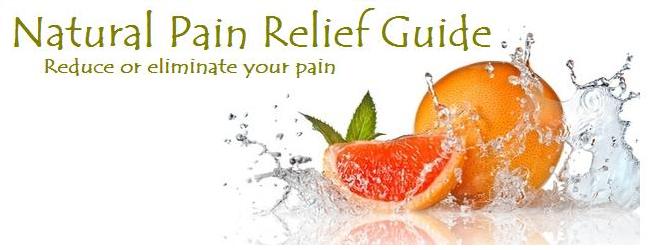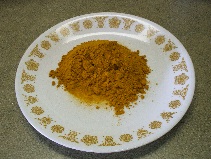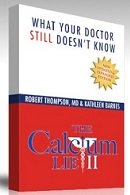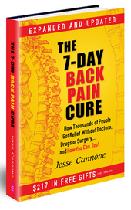 |
||||||||||||||||||||||||||||||||||
|
||||||||||||||||||||||||||||||||||
| Alzheimer's | arthritis | bronchitis |
| bruising | cancer | colds |
| depression | diarrhea | eye infections |
| fever | fibromyalgia | headaches |
| heartburn | infected wounds | inflammatory skin conditions |
| intestinal gas | jaundice | kidney problems |
| leech bites | leprosy | liver problems |
| loss of appetite | lung infections | menstrual problems |
| ringworm | mouth sores | stomach bloating |
| stomach pain | water retention | worms |
Turmeric Benefits - Reducing Inflammation
Turmeric is very beneficial to reduce inflammation in the digestive tract, and to help the liver. Curcumin has been found to lower the levels of two enzymes that cause inflammation. Since inflammation has been linked to so many conditions, curcumin has great potential to reduce pain, improve long-term health and, ultimately, increase lifespan.
Turmeric Benefits - Pain Relief
The Journal of Alternative and Complementary Medicine published a study in 2009 which compared curcumin, the active ingredient in turmeric, with ibuprofen in terms of their ability to relieve pain. A group of 107 people with knee osteoarthritis were treated with curcumin or ibuprofen and improvement in function was found to be about equal for either. In another study (2008), researchers at Baylor University Medical Center reported that taking moderate doses of curcumin daily for up to three months was safe. If you suffer from chronic pain, you may find, after using it regularly for a while, that your pain is reduced.
Turmeric and Cancer
The title of one 2011 study tells a story: "The curry spice curcumin selectively inhibits cancer cells growth in vitro and in preclinical model of glioblastoma." This is a very aggressive type of brain tumor. The study showed that curcumin "inhibited proliferation and migration and induced cell death" of cancer cells.
The treatment reduced tumors in nearly 82% of the control group; compared to 0% improvement in the placebo group and without side effects. Curcumin was able to selectively target mutated or transformed cells, without affecting healthy cells. (J Nutr. Biochem. 2012 June; 23(6):591-601. The curry spice curcumin selectively inhibits cancer cells growth in vitro and in preclinical model of glioblastoma. Zanotto-Filho A, Braganhol E, Edelweiss MI, Behr GA, Zanin R, Schroder R, Simoes-Pires A, Battastini AM, Moreira JC. Source Centro de Estudos em Estresse Oxidativo, Departamento de Bioquímica, Universidade Federal do Rio Grande do Sul (UFRGS), Porto Alegre, Rio Grande do Sul, Brazil.)
A cellular receptor, alpha(6)beta(4) is known to be a factor in cell proliferation, increasing tumor aggressiveness and thus decreasing life expectancy. It was found, in combination with other agents, to block the activation of alpha(6)beta(4), inhibiting the cancer cells' ability to utilize energy and limiting their motility.
The report detailing this concluded, "...these findings show that curcumin inhibits breast cancer cell motility and invasion ... and suggest that curcumin can serve as an effective therapeutic agent in tumors." (Cancer Prev Res (Phila). 2008 Oct;1(5):385-91. Curcumin inhibition of integrin (alpha6beta4)-dependent breast cancer cell motility and invasion. Kim HI, Huang H, Cheepala S, Huang S, Chung J. Source Department of Biochemistry and Molecular Biology, Louisiana State University Health Sciences Center, Shreveport, LA 71130, USA.)
Turmeric and Alzheimer's
Villagers in India are big consumers of curries with turmeric and have the world's lowest rate of Alzheimer's disease. There definitely is a relationship. In a study at the University of California at Los Angeles, rats were fed curcumin, the active compound in turmeric. These rats were prone to accumulate beta-amyloid plaque in their brains - the abnormality associated with Alzheimer's disease in humans. The curcumin blocked the plaque's accumulation and also reduced the inflammation related to Alzheimer's disease. The rats also did better on memory tests than the rats fed normal diets.
Turmeric and Lifespan
People in the island nation of Okinawa have the longest average life span at 81.2 years. It seems that the Okinawans drink large amounts of turmeric tea (see recipe below) either brewed fresh or available in local stores.
Turmeric Benefits - How to Use It
If you would like to try it, here is how to make turmeric tea. Surprisingly, considering it is a spice it tastes not bad.
- Bring water to a boil
- Add ground turmeric - 1/4 teaspoon per cup of water
- Simmer for 10 minutes
- Strain through a fine sieve. (If it is not quite fine you will have turmeric powder at the bottom.)
- Add honey and/or lemon to taste.
Experiment with the ingredients and flavorings until you find a combination that suits your taste. You could try freshly grated turmeric or combine it with ginger or other flavors.
You can also add 1/4 teaspoon of turmeric to many dishes such as soups, stir fries, casseroles or mix it into pasta or other sauces or salad dressings.
Try using it in different ways and increase your turmeric intake over time to 1/2 to 1 teaspoon per day. You could also add some cayenne pepper as well. Cayenne can be effective to help boost circulation.
CautionsTurmeric can stain, so be careful when using it. Turmeric should not be used with Coumadin (warfarin).
|
Keep up to date with valuable insights into pain management via a healthy lifestyle. Receive the monthly Natural Pain Relief Guide Newsletter. News articles, health tips, specials, freebies. Enter your email and name in the form to the right. |
Relieve your pain - approved medical device increases circulation and healing.
The contents of this site are intended for educational and information purposes only.
You have a right (and a responsibility) to educate yourself regarding health matters.
The information presented here is not meant to diagnose, prevent, mitigate, treat, or
cure any disease. If you have health concerns, consult a nutritionally-oriented health
professional and take responsibility to become educated in caring for your own health.








New! Comments
Have your say about what you just read! Leave me a comment in the box below.